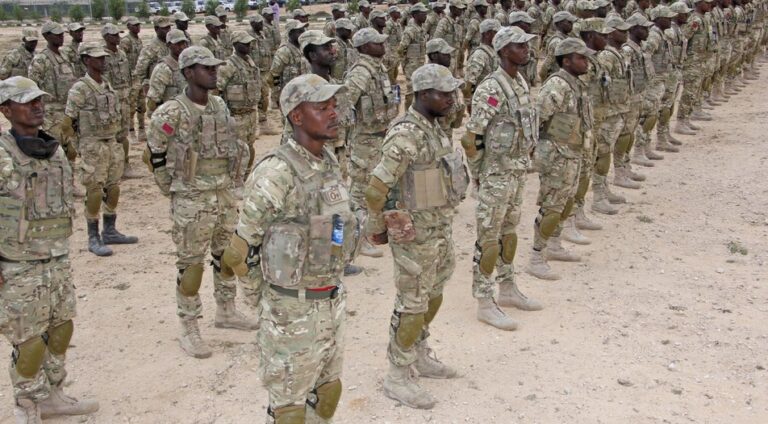By the end of 2024, when the final ATMIS unit in Somalia will be decommissioned, Somalia’s troops will be solely in charge of maintaining the security of their nation.
By reducing ATMIS, the UN Security Council has authorised a six-month extension of its deployment in Somalia to December 2024.
Numerous bases were transferred by the government forces, a few days ago. therefore the action has already been taken. Two thousand of their personnel are scheduled to leave Somalia soon.
22,000 soldiers from African nations, particularly those bordering Somalia, have participated in the African Union’s peacekeeping mission since it began.
The termination of the ATMIS mission comes as Somalia faces a number of difficulties, the first of which is the threat posed to its security by Al Shabaab, a militant organisation that has been at war with the government for the past 15 years. they still control a sizable amount of country, and they continue to enforce their rules. their commands are disregarded in the government-controlled areas due to ongoing assaults and insults.
Another major difficulty is the confidence that can be placed in Somali forces to take over the country’s security, given their quality and patriotic cause.
The presidents of Djibouti and Kenya, both of which have soldiers in Somalia, were among the first to express worry about the situation. They questioned Somalia’s security in the hands of the armed forces.
Although there is no set number, the government has been recruiting troops for the previous ten years, with training provided by countries that support Somalia.
These extremely numerous forces are under a variety of pressures that could prevent them from carrying out their duties. These pressures include,
1. They have little to no military training, but even with that, they have enough experience to oversee the security of their nation.
2-Also, the paucity of weapons in Somalia, as well as the load placed on the Somali army, may limit the ability to hold the bases in the ports being transferred, given that Al Shabaab possesses contemporary weapons. At several points, they conducted strikes on ATMIS.
3- Another issue to keep an eye on is the economic position of the remainder of the army, whose salaries are substantially lower than those of ATMIS.
The salaries they receive, which are insufficient to support their lives and the lives of their families, combined with a lack of commitment to the children or relatives of the soldier who sacrifices his life for the country, are detrimental to the efforts that can be expected of a soldier to ensure the security of the entire country.
On the other hand, there are various points that require confirmation and verification that can be touched on.
1- The impact of these forces on the intelligence of the countries that trained them, some of which continue to pay their wages.
2- It is critical that they ponder thoroughly on their patriotism and the gravity of defending Somalia’s recovering government.
3- It is also vital to ensure that they are independent of the country’s politics, which are based on the tribal structure, as this might lead to conflict and undermine their purpose of preserving the country’s security.
All of these mentioned points are potential roadblocks that may occur once the country’s security is handed over to Somali forces.
ATMIS, which entered Somalia in 2007, has long supported the Somali army, which has faced these and other challenges.
Currently, they are totally responsible for the security of the country’s administrative areas, including Bay Bakool, Juba, and Gedo, where it is challenging to perform the security function dependent on ATMIS.
The second phase of the fight against Al Shabaab, in which ATMIS is involved, could be severely hampered by their delivery, according to security sources, especially in the frontline nations.
Other nations that support Somalia have put a significant financial strain on the ATMIS effort, but this final stage of their operation, which is being conducted by the Somali government, is an urgent concern that could lead to another security burden in the future.
However, in order to achieve the security of its nation, whether in the near or distant future, Somalia must restructure its military, paying particular attention to its leadership, its resources, its finances, its morale, its values, and its strategy. His endeavour, on which they may all concentrate, can result in the discovery of a government army that is decked out in national pride and that can be trusted to protect their nation.
